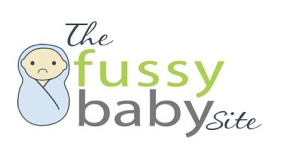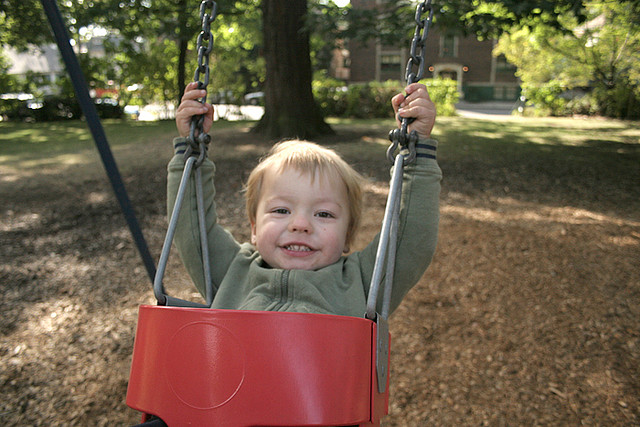- You are here:
- Home »
- Blog »
- Spirited Kids »
- The Most Harmful Misconception About Spirited Kids
The Most Harmful Misconception About Spirited Kids
I first learned about the term ‘spirited child’ when my Sammy was just about a year old. A friend gave me Mary Sheedy Kurcinka’s excellent book, Raising Your Spirited Child, and I couldn’t believe how spot on she was in describing my boy. I had previously discovered the term high need baby, but as Sammy was now moving toward toddlerhood, the term didn’t seem to fit.
I loved the term spirited child, as I found it had a much more positive connotation than high need. It was also a term that people seemed to be quite familiar with (at least Sammy’s teachers were…I guess they had had to deal with one or two other spirited kids in their time!).
But as Sammy has gotten older, I find I have been extremely hesitant to use the term to describe him. Yes, he is still very sensitive, and thrives with a predictable routine. In many ways, he does meet the criteria for a spirited temperament as laid out in Kurcinka’s book.
However something I’ve noticed is that ‘spirited’ – in certain circles – is sometimes being used synonymously with ‘wild’, ‘uncontrollable’ or even ‘bad’. This is the reason I hesitate to use it.
I’ve heard some comments from parents lately that have made me uncomfortable, and they’re in the vein of:
“The rules don’t apply to my child…spirited kids can’t be expected to follow the same rules as their peers.”
or (and this one makes me very sad):
“I’m so scared my high need baby may end up being spirited.”
This bothers me. Don’t get me wrong: I understand and know firsthand how spirited kids work. Their reactions can certainly be intense, and can actually make them appear to be completely out of control at times. Instead of crying because their feelings are hurt, they may bang their head on the floor, hit or bite their playmate or have an epic temper tantrum.
To put it simply: It’s isn’t always easy having a spirited kid. That said….
Fact #1: Parents of Spirited Kids Aren’t Helpless
I used to feel completely powerless when it came to handling Sammy’s BIG emotions and reactions. I assumed that the techniques and rules that applied to ‘normal’ kids wouldn’t work for Sammy (and admittedly, often they didn’t).
But what I didn’t always fully grasp was that just because a certain set of mainstream rules or best practices didn’t work for him, this didn’t mean there weren’t techniques that would work. And sometimes, mainstream strategies WOULD work, but would take longer than they would with other kids.
In my experience, teaching healthy sleep habits is one example where this is often the case. I’ve worked with many pediatric sleep consultants over the years, some of whom specialize in working with high need babies. Skeptical, I’ve asked several of them, “Does sleep training REALLY work with high need babies?”. Their response is always the same: “Yes, but you need to expect that it will likely be harder and take longer.” (Please note: This is NOT said to put pressure on anyone who chooses not to sleep train. It is meant as an encouragement to parents who are choosing to take this route.)
Another example is when I tried to to teach Sammy the concept of hanging his jacket up when he got home from school. He was 3.5 or 4 years old, and I felt he was old enough to simply hang it on a hook in his room. It took an entire week of practice, complete with 45 minutes a day of crying, fussing and pleading – and this was WITH warnings on the way home from preschool that his jacket would need to be hung before he could have an after-school snack. But, after an entire week, he had figured out that this was what was expected.
I recently contacted a couple of my ‘go to’ experts to ask them their thoughts on what we should realistically expect from our spirited kids. I asked Mary Sheedy Kurcinka if parents are powerless when it comes to teaching our spirited kids proper boundaries and appropriate behaviours. Her response:
“Being “spirited” is never an excuse for poor behavior. It is a tool for understanding.
When you recognize that your child is have difficulty managing a public situation because he is highly sensitive to sound, smells, etc. it is much easier to be empathetic, and help him learn coping skills, such as stepping away, listening to music via headphones so he controls the sound, finding a spot that is less crowded etc. When you are sensitive to his needs and teach him appropriate coping skills it is called “goodness of fit.” When children live in an environment that is sensitive and responsive to them, they thrive!”
Research over the past 50 or so years has also shown that so-called ‘difficult infants’, are more susceptible to parenting styles than ‘easy’ babies. In fact, difficult babies who are parented appropriately actually tend to be better-behaved, more social and more academically advanced than their peers in grade one.
If this doesn’t make you feel powerful, I don’t know what would!!!
Fact #2: Spirited Does Not Equal ‘Bad’
I also asked Judy Arnall, president of Attachment Parenting Canada, discipline expert and author of the soon-to-be-released book Parenting with Patience: Turn Frustration into Connection with 3 Easy Steps if it’s appropriate to think of ‘spirited’ as ‘uncontrollable’:
“Their intensity means that they react to limits and boundaries with hurricane force, but they do settle into acceptance. And they get better as they age on toning down their displays of anger and frustration. The persistence characteristic is where they really shine as older children. When others give up, they keep going. My two spirited children in university have faced all kinds of disappointments in dealing with bureaucracy and I am constantly amazed at how they plug away and carry on. Sensitivity is another area that they shine at. They make great friends because they notice other’s feelings and respond. My three spirited children (first, third and fifth) are lovely to parent at 23, 19 and 12. It does get better!”
As the proud mom of a 7.5 year old spirited son, I can honestly say that having a spirited child is an honour. Until he was about 4, he was….a challenge. He was exhausting, and there were many days I cried because I felt so helpless in knowing how to parent him. I certainly didn’t see his spirited temperament as a blessing.
But as I’ve said many times on this blog, as he’s learned to cope with his big feelings and frustrations, he’s become an amazing, rule-sensitive, empathic little dude (you can read more about this here: This is Not the Child I Dreamt of).
As these high need babies grow into spirited kids, they gradually – with your help – learn to follow the rules, respect those around them, and cope with their big feelings. For more on how these spirited kids develop from infanthood to adult, see this post by Judy Arnall: Characteristics of the Spirited Child.
In the coming months, I have made it one of my goals to provide you with more information on exactly HOW you can parent your spirited child to give him or her the best chance of success.
In the meantime, I’d love to hear your story of having a spirited child. What has been the hardest thing for you? What has been the biggest blessing?
Image courtesy of Alice Carrier under CC 2.0
Other Posts You May Like
50+ Best Toys & Products for Spirited Kids, 0-5: Christmas Gift Guide
Stop Crying, Calm Down, and Other Things We Tell Our High Need Kids
What Is A High Need Baby?
Is My Baby Colicky or High Needs?
The Most Harmful Misconception About Spirited Kids
Is There Really Such a Thing as a High Need Baby?

